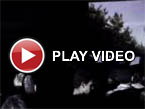"Awake My Soul/Help Me to Sing"
 Matt and Erica Hinton spent seven years making their essential documentary about Sacred Harp hymn singing. This companion set comprises the soundtrack of gloriously raw a cappela music from the film, with a second disc of interpretations by artists such as Doc Watson, The Innocence Mission, Richard Buckner, Woven Hand, and John Paul Jones. It is a win-win situation.
Matt and Erica Hinton spent seven years making their essential documentary about Sacred Harp hymn singing. This companion set comprises the soundtrack of gloriously raw a cappela music from the film, with a second disc of interpretations by artists such as Doc Watson, The Innocence Mission, Richard Buckner, Woven Hand, and John Paul Jones. It is a win-win situation.
I can’t pretend to understand the details behind the theory of shape notes. It’s enough, though, that they make it easy for people who don’t read music to somehow, well, read music. The only allusion I can come up with is i.t.a. the much-maligned reading learning process which basically said it is foolish to insist that children learn correct spelling of words, instead let them write ennyway dey fink iz ryte. These are the Scrabble opponents I long to play! But I digress. There is an unbridled power to the voices on Awake, My Soul and the roots of their singing goes back beyond the Deep South to the plainsong of Northern Europe. Many of these songs begin with what seems to be a period of limbering up followed by a section which sounds more like a standard hymn. On wonderful pieces such as "Stratfield" the limbering up part is bracing, full of discordant power and a beguiling, organic, complexity.
Luckily, detail and intellect should be left at the door when approaching Sacred Harp or shape note singing, since it is less about understanding or analysis and more about instinct and full-hearted participation. The form also has the democratic appeal of devotional music without a separate choir of ‘good singers’ and, best of all, no cold organ obliterating the human voices. In that sense, Sacred Harp singing reinforces the notion that all are equal in the eyes, and ears, of God. Not that belief in God or in the existence of a soul is necessary for enjoyment. Far from it. Indeed, an appreciation of this music can rely totally on delight at these pure and visceral sounds; rather like hearing the shifting pulses of Steve Reich’s Music for 18 Musicians without being a Buddhist. In theory, taking part in the singing would feel better than listening, and singing when imbued with a conviction of faith might be even better. To put it in secular terms, The Kop singing “You’ll Never Walk Alone” is impressive, but being there and singing along must be more affecting. Furthermore, doing so with the conviction that Liverpool FC is the greatest team in England must top that. There are just some leaps of faith that agnostics (and Manchester United supporters) cannot (or will not) make!
The Hintons (as filmmakers and curators of the compilation) feel that the second disc of interpretations might hook a new audience for the real thing. Maybe, but the interpretations are very different; paler and less intense. At first, I found that Help Me to Sing seemed feeble compared to Awake, My Soul but eventually some of the power of the latter fell away and the gentle songs of the former acted as a healing balm. Perhaps it depends on mood. Ultimately, Sacred Harp singing has an effect that is beyond description: to quote Emily Dickinson:
The murmur of a bee
A witchcraft yieldeth me.
If any ask me why,
'Twere easier to die
Than tell.
Some people fail to question the pitifully crude stereotype that only black people make passionate music for the gut whereas whites compose intellectual music for the mind. Sacred Harp singing is yet another refutation of that nonsense. It has been largely a rural Southern pursuit but is practiced in some US cities (including Dallas) and also in England. It ranks as one of the most exhilarating, exuberant, life-affirming rackets known to human beings. If the walls of Jerico did indeed fall, well, we now know how. Whether this music is part of salvation and eternal life depends upon your point of view. In the here and now, research has shown that three group activities are particularly beneficial to a person’s health and well-being: camping, dancing and choral singing. Those researchers might not have been camping in the wet Cornish summer of 1974 or tried dancing in the booze-soaked environs of Stoke-on-Trent circa 1981, but pulling together and belonging is undeniably important and Sacred Harp singing fits right in. It has survived widespread disinterest until now and I’m sure it will flourish despite fifteen minutes in the spotlight of a superficial media who will gobble up the DVD and this set before moving swiftly on.
samples:
- China
- Norwich
- Stratfield
- Woven Hand - Consecration
- Doc Watson and Gaither Carlton - And Am I Born To Die? (Idumea)
- The Innocence Mission - Africa
- Richard Buckner - Windham



